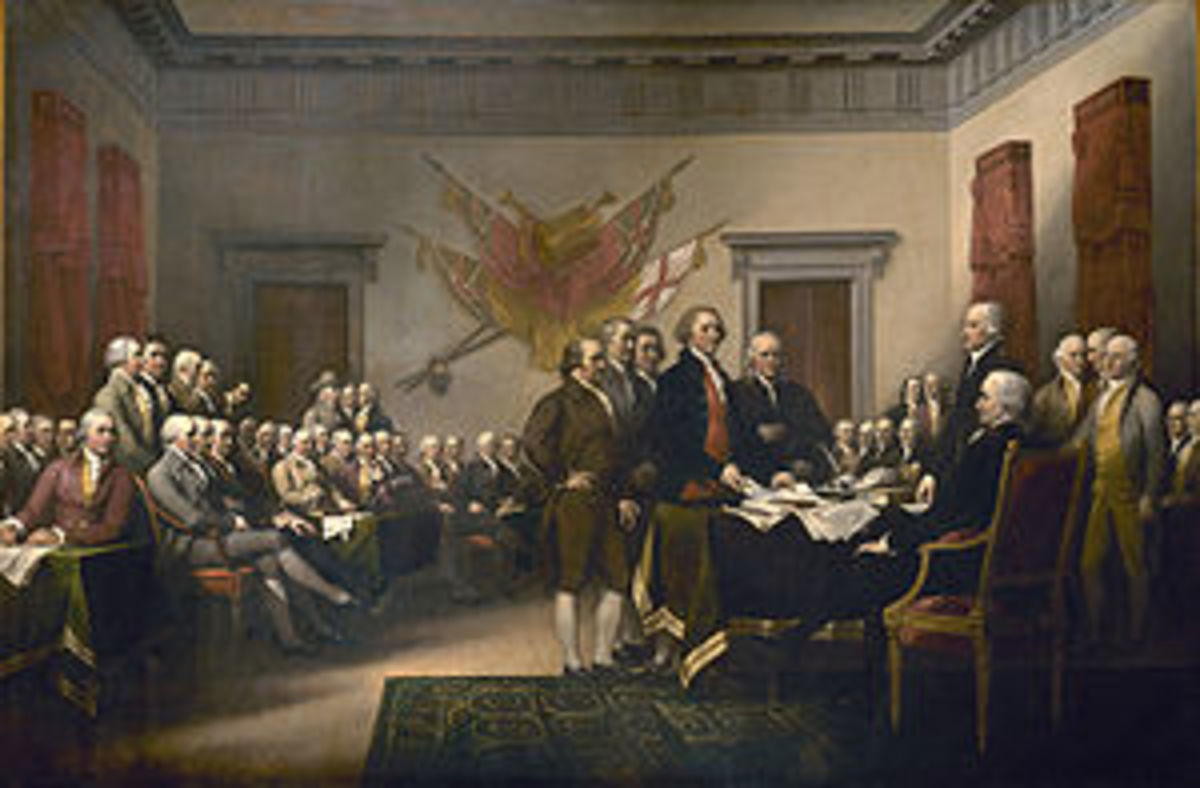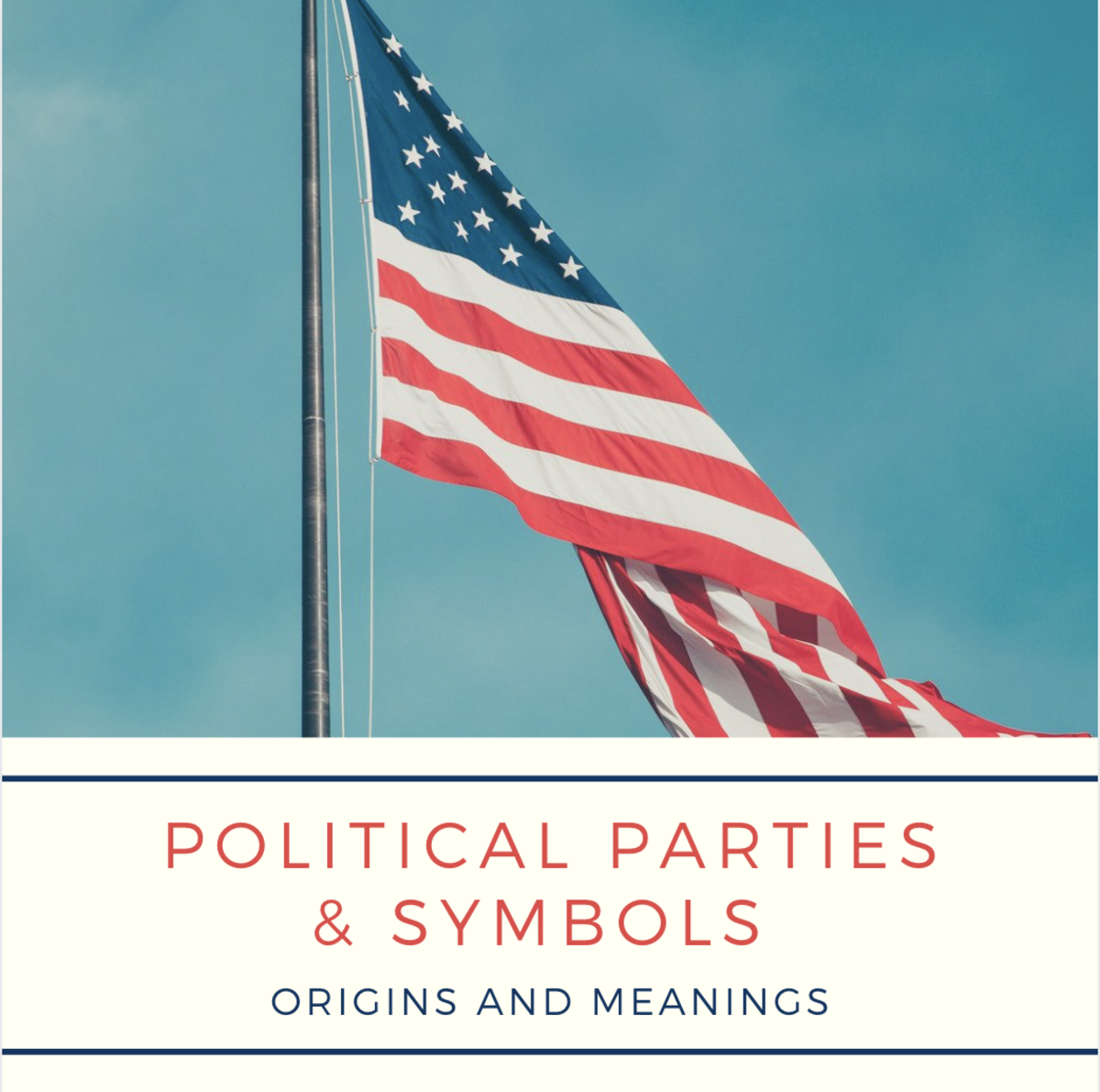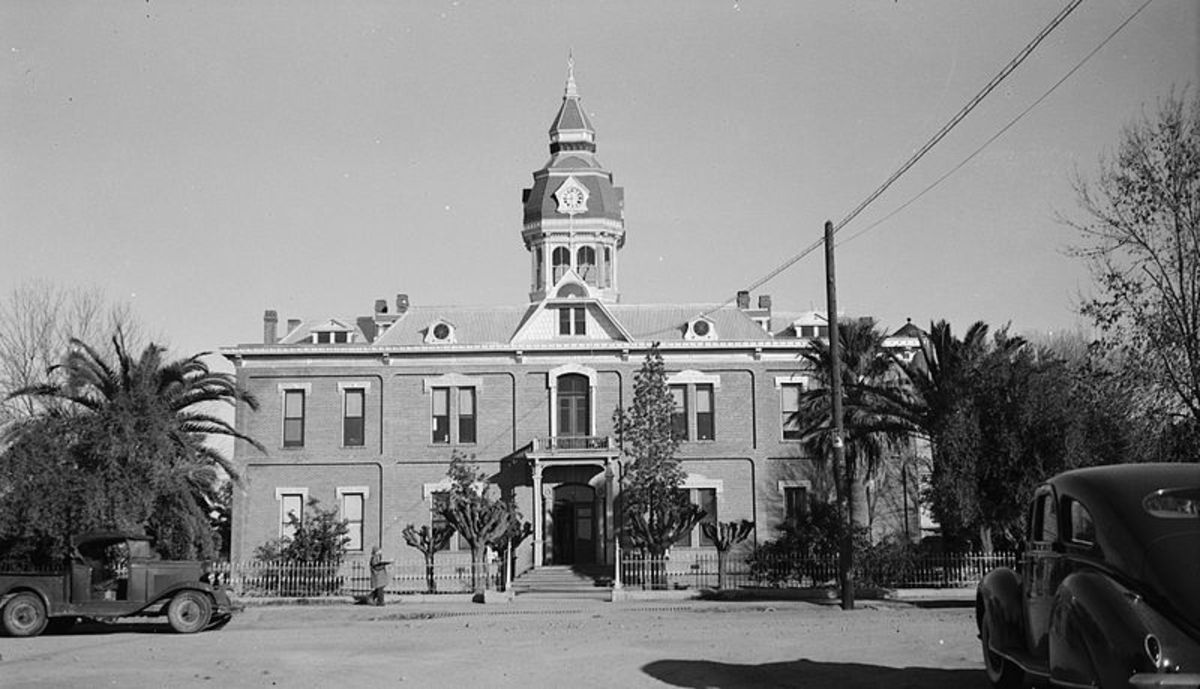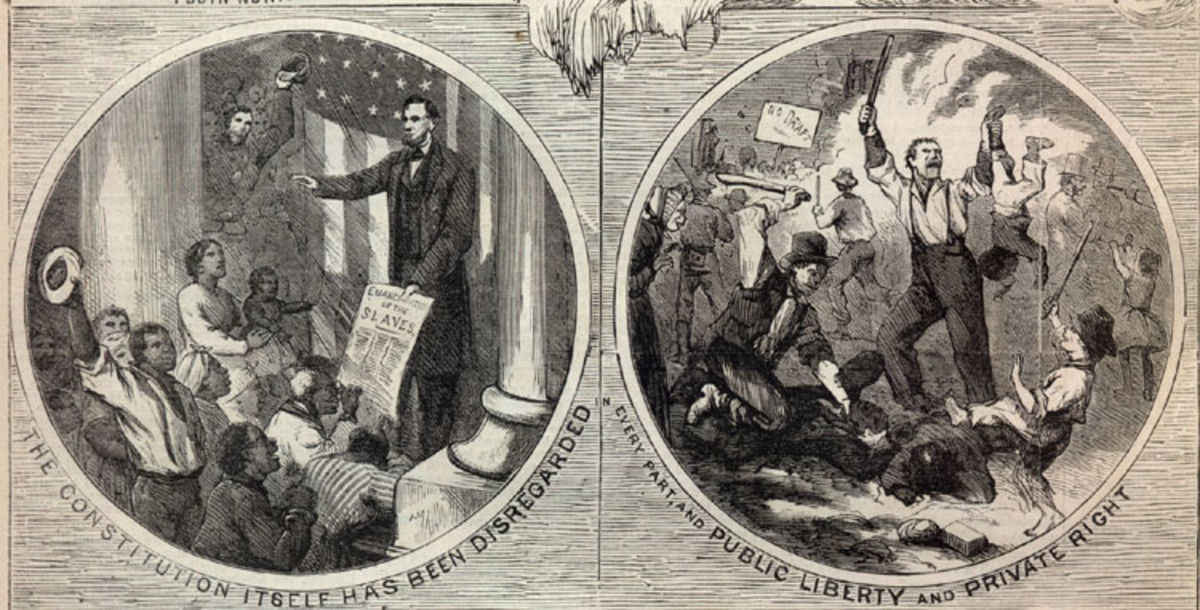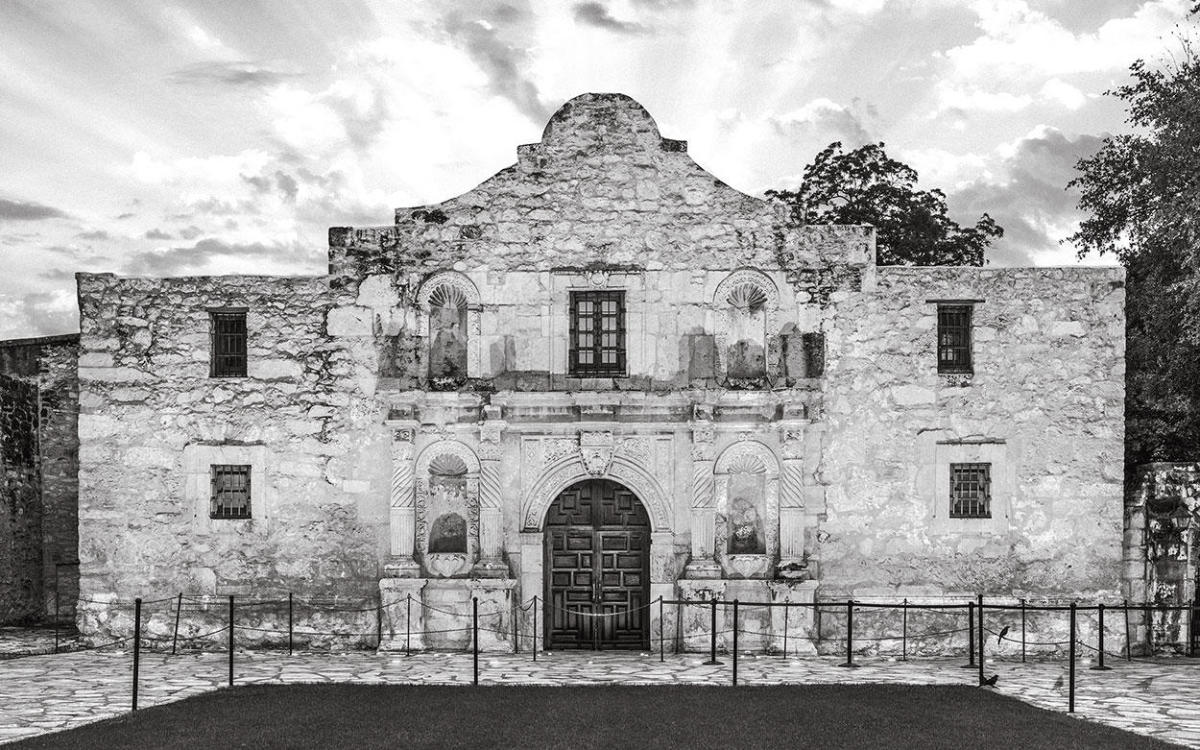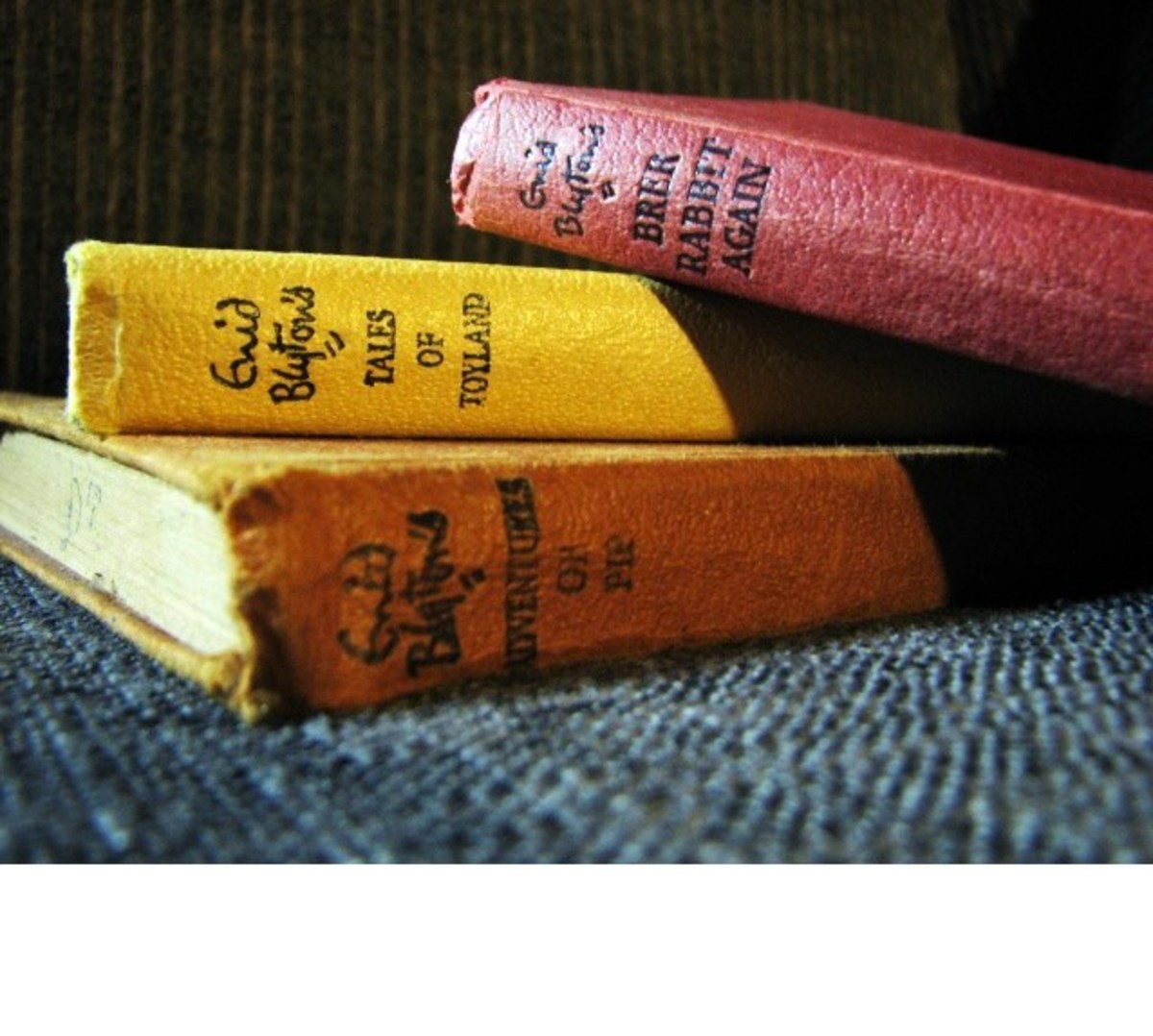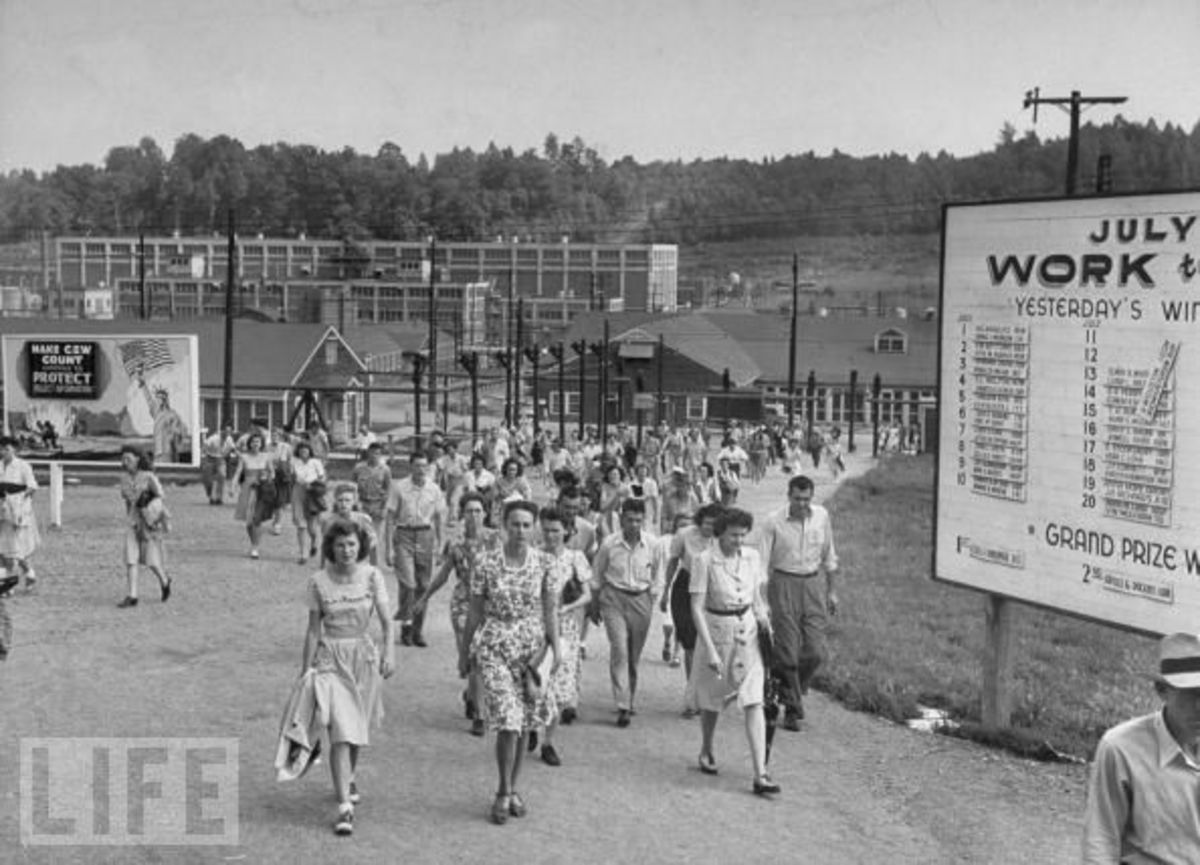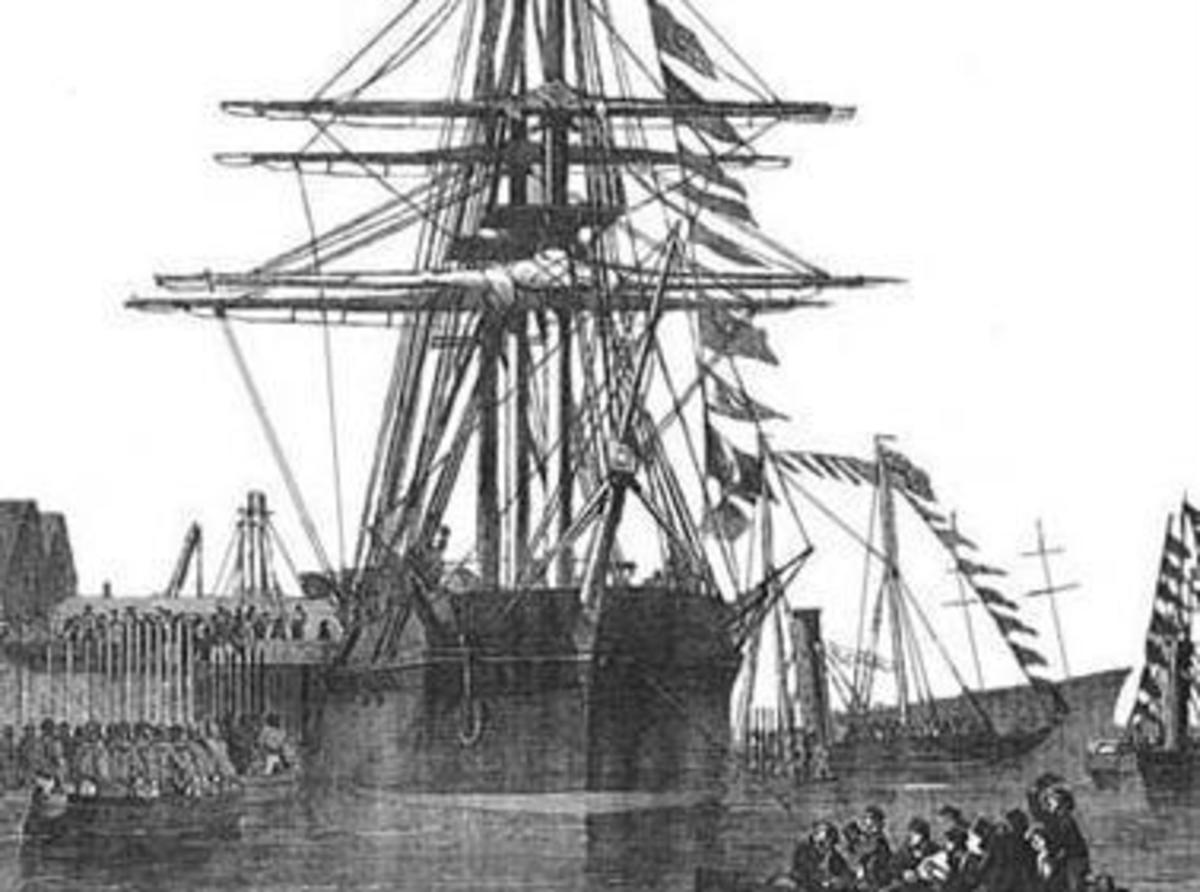- HubPages»
- Education and Science»
- History & Archaeology»
- History of the Americas
American Political Parties: A Brief History
Introduction
American political parties....are they still important? Yes, but their power is not what it used to be. In this essay, I will give a summary of the American political party and I will do that by focusing on key presidents that were important as political parties changed from one era to the next. Those presidents of most importance were Thomas Jefferson, Andrew Jackson, Abraham Lincoln, William McKinley, and Franklin Roosevelt.
Political Parties and the Founding Fathers
Several American founding fathers, like George Washington, hated political parties; they were the "factions" that James Madison spoke of in Federalist #10. The irony though is that the partisan spirit found its way into Washington’s cabinet in the persons of Alexander Hamilton and Thomas Jefferson.
On one side, you had Alexander Hamilton, a Federalist, who organized his followers to support a strong national government and the passage of the Constitution. Once the Constitution was adopted, he tried to curry favor with the British and promote a national economy with a central bank as the means to finance the national debt and support a national economy of trade and manufacturing.
His rival was Thomas Jefferson and his followers came to be called "Republicans." Jefferson favored states rights over a stronger national union and was a Francophile--he had been our nation's second Ambassador to France. Jefferson and friends hated the banks and envisioned an economy of farmers as opposed to national economy of trade and manufacturing.
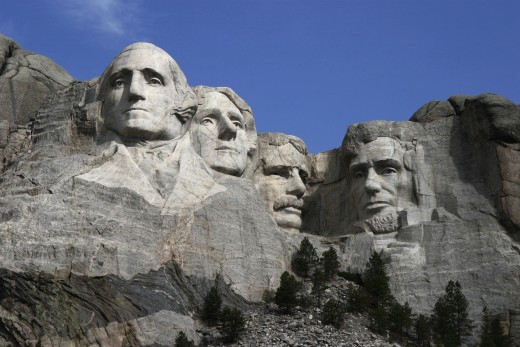
Thomas Jefferson
Thomas Jefferson, America’s third president, was instrumental in the creation of America’s first organized political party, the first Republican Party. During the 1790s, Jefferson’s followers began calling themselves “Republicans” to suggest that their opponents were secret monarchists. Jefferson for his part thought that Hamilton was not simply pursuing bad policies but was subverting the Constitution itself.
The Opposition Party—While Jefferson was the Secretary of State for President Washington, he asked a poet and printer named Phillip Freneau to come and work part-time in the State Department. Freneau would spend some of his time starting an opposition newspaper to the Federalist Gazette. Freneau did this and started the National Gazette in 1791. Here we have the first opposition government newspaper in the United States. And this opposition paper provides some of the ammunition which will help create the first modern political party in the United States, Jefferson’s Republican Party.
Republican Success—In 1800 Jefferson beat the Federalist John Adams for the presidency and the Republicans assumed office. The Republicans were so successful in taking control that the Federalists moved toward extinction. Jefferson would win reelection in 1804 with almost no opposition and his protégé, James Madison, easily won two terms. Madison was to be followed by James Monroe who would carry 16 of the 19 states in 1816 and was reelected without opposition in 1820, something that has never happened in presidential election lore save the two times that Washington was elected president
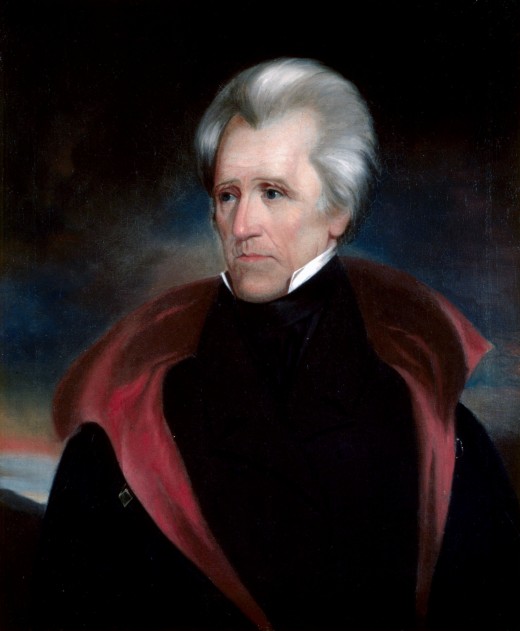
Andrew Jackson
What is called the 2nd party system starts about 1824 with Andrew Jackson's first run for president and lasted until Abraham Lincoln.
The Rise of American Democracy--To be called a "democrat" during the beginning of the United States was considered a term of derision, but the nation began to change. As the nation expanded westward, the eastern establishment control over political norms decreased. More ordinary Americans were serving in government and so government became the interest, not just of American elites, but also of the common man. In addition, more people were voting for president as state legislatures permitted a popular vote for the president as a basis for the electoral vote.
But, the people had little say in the party nomination at the beginning; the control of presidential nomination was in the party caucus in Congress. "Caucus" is an old Indian term meaning meeting or gathering. The caucus system became unpopular during the 1824 election when war hero Andrew Jackson was defeated for the presidency by John Quincy Adams who was favored by the party caucus. Supporters of Jackson blasted the election, saying that it was "stolen" by "King Caucus." Jackson would run again in 1828, this time winning and he will win again in 1832.
Jackson and the Two Party System--Up to this point, America had mostly been a country with one dominant party. When Jackson was elected in 1828, Jefferson had been out of office for 20 years and had been dead for two years. Some of the people in Jefferson's party still held Jefferson's view of distrust of banks and championed states rights. Jackson was such as man, but other Republicans were more trusting of the moneyed interests and wanted programs to promote a national economy, like what Alexander Hamilton had favored. These differences will create a split in Jefferson's party with Jackson and his followers called the "Democrats" and those that opposed Jackson, like Henry Clay, Daniel Webster, and John C. Calhoun, were called "Whigs" after the Whigs of England. Like those Whigs, they saw themselves as opposing monarchy, in this case, "King Andrew."
More Popular Control--As mentioned before, the haunt for early political parties was in the party caucuses. However, more and more American begin to identify with the party labels. Over time, parties move from just being cliques inside the Congress (prior to Jefferson) to local organizations within the states (from Jefferson to Jackson) and now after Jackson, they begin to take on a national appeal. The organization for the national political party will be the party convention. At a party convention, local and state party organizations appoint delegates from their party organizations to attend a national conference. At this conference, they select the presidential nominee. By 1831, the first convention for the presidential nominee was held by the Anti-Masonic party. Major parties followed suit: the Anti-Jackson Republicans held a party convention in 1831 which nominated Henry Clay. In 1836, Jackson's new Democrat Party held a convention in 1836 in which they nominated Martin Van Buren, the first convention nominee to win a presidential election. Today, the party convention is still used to chose the presidential nominee, although the convention is heavily influenced by state party primaries in the selection of delegates.
Patronage—Jackson also marks the beginning of the wide-spread use of patronage—Rewarding party favorites with benefits—primarily to keep power “Elect me and get the benefits.” Jackson reasoned that a republic should have a continual turnover of political officers. Of course, there were not many government jobs in the beginning. Most of them were jobs related to the U.S. Postal Service. As the country expanded, so did the postal service.
Abraham Lincoln
After Jackson, the country was moving toward becoming a bipartisan nation with the Whigs and the Democrats as rivals. When Jackson became president, slavery, tariffs, and states rights were important issues that only grew more divisive over time. Many Americans held strongly to the view of states rights and felt that slavery should be a decision that was decided by each state. However, controversy intensified as new states entered the union with slave owners insisting that new states entering the union be slave states while others opposed the entry of new states into the union as slave states.
Most influential southerners were anti-tariff, supported slavery and states rights and made the Democrat Party their home. As for those in the north that opposed slavery, they tended to make their home in the Whig Party. But the Whigs had problems as the nation moved into the 1850s. They were more divided over the issue of slavery than were the Democrats. Some Whigs were absolutely opposed to slavery and many of them will move toward a second “Republican Party.” Some of the Whigs that were more sympathetic to state’s rights and the southern position actually became Democrats. By the time of the Civil War, Republicans almost exclusively in the north while Democrats could be found mostly in the south, but some, like Stephen Douglas, were in the north. So the Republicans supplanted the Whigs as the party in opposition to the Democrat Party and will field their first successful Republican candidate for President: Abraham Lincoln of Illinois.
Today, the two dominant parties of the United States are still the Republicans and the Democrats, just as they were during the Civil War. The Civil War will lead to a northern win, and with that win, Republican Party dominance. Many states became one-party states with the Republicans dominating the north and the Democrats dominating the south. The South remained solidly Democrat (called the “Solid South”) until the late 20th century.
As for the Republicans, they were (for the most part) in the political driver’s seat from the Civil War until Franklin Roosevelt. As so often happens, parties without competition from without tend to develop factions from within and the Republicans were no exception. The “one partyism” among Republican states led to factions within the Republican Party between those that preferred the old, traditional way of conducting party politics and younger group that tended to want more reforms. Those Republicans that were of the old guard that favored the patronage system were called “stalwarts”; those newer Republicans that were reform-minded and despised the patronage system were called “mugwumps.” Many of these younger Republicans had fought in the Civil War and were professionally trained soldiers. So they favored politicians that advanced because of merit rather than political connections. In the end, the “meritocracy” will win out. Civil service reform will be ushered in after the assassination of President Garfield, who will be shot by a disgruntled job seeker. Chester Arthur signs off on the Pendleton Act (1883) which institutes the modern civil service system—Now the political jobs are going to be taken away from the political parties and the government will give them out. People will have to take a competitive exam to receive the job. The patronage system which began in full force under President Jackson is on the way out; merit is on the way in.
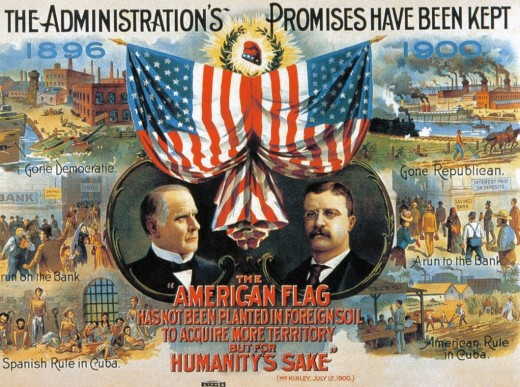
William McKinley
The latter 19th century was a time for advancing reforms. The progressive movement which began in America’s cities was increasing their influence as a middle-class urbanite movement and came to represent the beginning of the consumer economy. Another reform movement, the populist movement, was a reform movement among American rural farmers and miners. One of the champions of the populist movement, William Jennings Bryan, will run as a Democrat in the 1896 presidential election and face off against William McKinley a Republican that represented tradition and moderation. McKinley will win that race.
This 4th party system was not as revolutionary as the others. However, it did deepen the sectionalism in the country. This was largely done by William Jennings Bryan. Bryan’s campaign alienated northern Democrats who were not sympathetic to the populist cause. But what Bryan did for the Democrat Party was to secure for them the reputation of being the party of the common man, who needs protection from big business and big moneyed interests. After the 1896 election, the Democrat Party becomes tied to populist causes, like those to increase the power of government.
Also, after the 1896 election, the nation began to look more east v. west as opposed to just north v. south. From 1896 to 1932, with few exceptions, the Republicans dominated American national politics.
Franklin Roosevelt
The Great Depression and other national changes led to the mounting dissatisfaction with Republican policies which led to the election of Franklin Roosevelt in 1932. Roosevelt was able to cobble together a new coalition of interest-based voters that dominated American politics until the late 20th century.
Strange bedfellows—Roosevelt was able to forge a coalition that was a mixture of regional hatreds and class interests. Progressive intellectuals, minorities (like Catholics), southerners, blue-collar workers and their unions. While the coalition will begin to fracture in the 1960 and starts to unravel, it tends to remain dominant throughout the 20th century up until the midterm election of 1994.
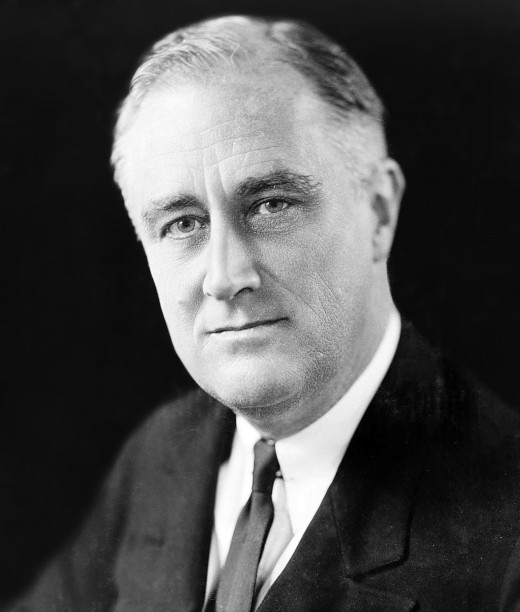
Whither the Political Party?
Many scholars believe that the American political party has weakened over time and that political parties may be the political “horse-n-buggy” modern politics. Certainly their influence does not appear to be as central to American politics: American politics has become a more professional operation and with it more independent candidates. Candidates raise their own money and run their own campaigns these days, depending far less on the parties. Television also served to make politics more “candidate-centered” and less “party-centered.”
However, parties have adapted to the changes in American politics and have remained remarkably robust. Parties continue to contribute money and professional advice to candidates. The party convention still nominates presidential candidates and primaries continue to nominate candidates for other offices, although the determination of the nominee is settled by party voters rather than the party organization. Finally, it is probably to the benefit to the parties that they are now the haunts for ideologues. While it was more common to find both liberals and conservatives in both parties, this has diminished with the conservatives to be mostly in the Republican party and the liberals to be mostly in the Democrat party
© 2019 William R Bowen Jr

